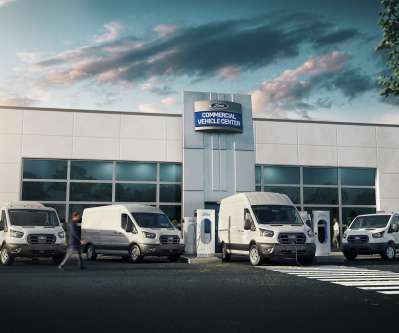Ford opens E-Transit Registration site for commercial customers; new pricing
Green Car Congress
MAY 4, 2021
It will be built alongside the Transit at Ford’s Kansas City Assembly Plant in Claycomo, Missouri. Preliminary conversations with commercial customers indicate a healthy mix for demand across all eight configurations, with roughly 40% leaning toward high-roof vans and 60% pointing to medium-roof, low-roof, cutaway and chassis cab versions.












Let's personalize your content